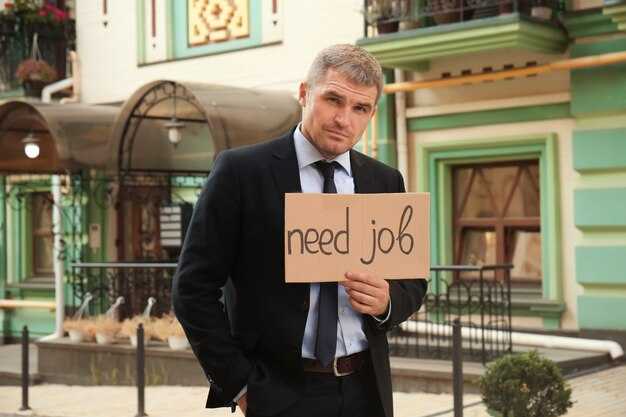Have you ever experienced someone who vanished when you needed them and then suddenly reappeared as if nothing had happened? They message you unexpectedly, like your posts, or slide into your DMs with lines like, “I’ve been thinking about you.” For a moment your heart races. That familiar pull returns—the curiosity, the hope that perhaps this time they finally grasped what they lost. But before welcoming them back, pause and look for the reality beneath their comeback. An avoidant’s return rarely signals true love, maturation, or transformation. Most often it masks a need for control, a bid to ease guilt, or unresolved feelings they can’t manage on their own. If they display any of these five behaviors, don’t let them back in. No matter how persuasive their words sound or how vivid the memories feel, these cues show that nothing fundamental has shifted. The narrative may be dressed differently, but it’s the same play with better acting. Start with the first warning sign. The classic trap is their performance of remorse. When avoidants reappear, they’ll often offer what looks like heartfelt regret—phrases such as, “I’ve been doing a lot of thinking,” or, “I finally see how much you mattered.” Those words land hard because you longed to hear them. But real remorse reveals itself through sustained effort, patient listening, and concrete changes. Phony remorse is loud with declarations and sparse in follow-through. When avoidants say, “I miss you,” often what they miss is the comfort you provided—your warmth, the validation, the emotional safety net that let them avoid facing their inner discomfort. In lonely moments they return to reclaim that ease. As soon as you begin to accept the story again and open up, they pull away—because reconnection wasn’t their aim; relief from guilt was. They want to feel less like the person who left someone who cared. Spotting false regret is straightforward: abundant talk, little accountability; they dodge deep conversations about what went wrong or what must change. “Let’s just move forward” can sound mature but frequently serves as avoidance dressed up as growth. They want forgiveness without making amends. When they regain that comfort, the emotional distance creeps back. If the language is perfect but the behavior is unchanged, it’s guilt being recycled, not love returning. Don’t mistake nostalgia for genuine change. Someone who truly feels remorse takes responsibility, listens, and alters harmful patterns. The most dangerous part of fake regret is how it exploits empathy. You remember the good times and hope for transformation, but someone who truly values you shows it while you’re still there, not after they’ve let you suffer. So that’s the first red flag: a convincingly acted apology without consistent action. If their words don’t match reliable behavior, protect yourself and don’t reopen that door. Moving on to the second trap: the silent punishment. This dynamic eats away at you slowly, piece by piece. Initially, after reconnection, everything seems brighter—attentive messages, warmth, maybe even plans. You begin to relax and imagine a second chance. Then a gradual fade begins. Texts shrink, calls wane, and their presence changes in ways you sense before you can name them. You start questioning: Did I push too hard? Did I say the wrong thing? Are they losing interest? What’s actually happening is that silence becomes their means of control. They withdraw not because of anything you’ve done, but because closeness alarms them. Rather than communicate, they retreat into quiet and watch how you respond. Will you pursue them? Will anxiety drive you to double-text? Their silence gauges your willingness to chase. It’s not a conversation; it’s manipulation that makes you feel insecure while they feel powerful. When you ask what’s wrong, they flip it, making you seem overly emotional: “Why are you so sensitive?” or, “I just needed space—can’t you relax?” Suddenly your need for clarity becomes the problem. This conditioning trains you to accept less and blame yourself for desiring more. You learn to stay silent when they withdraw, convincing yourself you’re being considerate. But beneath that calm lies anxiety and confusion. The silence is intentional; it teaches fear of withdrawal and rewards the occasional bit of attention. That’s not love—that’s emotional conditioning. Genuine connection feels safe, not suspenseful. If someone cares, they’ll try to communicate even when it’s uncomfortable. They won’t punish you by withdrawing to test you. The toxicity of this pattern is that you begin to measure the relationship by the absence of pain rather than by authentic moments. “At least they didn’t ignore me this week” becomes a standard, as if mere non-hurt counts as love. That is survival, not connection. Silence may be restorative at times, but it should never be a weapon. When two people truly care, quiet is rest, not rejection. When silence is used to control or confuse, it becomes emotional cruelty in calm packaging, eroding your confidence until you doubt your instincts. If they go quiet after reconnecting, understand it as a statement: “I prefer power over partnership.” Once this pattern is recognized, stop feeding it. Each time you chase their retreat, you train them to believe you’ll always return. Every time you accept unpredictability, you make it normal. Real connection is about knowing, not guessing. If they vanish for days and reappear without explanation, if asking for clarity makes you feel needy, the answer is clear—you don’t need to fix or analyze it, just accept that they are showing who they are. The person who values you will not make you beg for communication or doubt your worth. The core of avoidance is fear: fear of closeness that becomes punishment. You cannot fix that for them, however patient you are. If the pattern repeats, step back and remember that love shouldn’t feel like a test—you don’t have to earn or chase it. Recognize when it’s missing. The first two signs tell the core story: false regret seeks relief, not responsibility; silent punishment seeks control, not honest connection. Both are traps designed to reel you back into a painful loop. Once you identify the pattern, you can stop hoping the script will change—sometimes the only thing that will transform is you. Choosing not to tolerate half-hearted love means you deserve someone who communicates, shows up, and stays. Never take an avoidant back when these behaviors are present, because how someone returns is often how they will continue. If they come back confused, they’ll leave confused; if they return without clarity, they’ll depart without closure. You don’t need to relive that cycle to test your limits. Love is not waiting; it’s arrival. When peace becomes more valuable than potential, leaving an avoidant who repeats these behaviors isn’t weakness—it’s healing. Next comes the third tactic, which feels deceivingly like progress: superficial promises of change without true accountability. This is when they suddenly sound enlightened—talking about therapy, personal growth, boundaries, or newfound self-awareness. On the surface it may seem like maturation and you might feel hopeful. But often they’re repeating the language that sounds mature, not demonstrating genuine transformation. Real change requires time and discomfort—owning the depth of the hurt caused, showing steadiness when things get tense, and being accountable when emotions are difficult. An avoidant who returns with a polished speech is often performing growth rather than living it. They’ll claim to have changed yet still recoil at real emotional work. They promise to communicate but disappear when conversations get challenging. They may acknowledge your pain in words but trivialize it as overreactions when you voice it. Awareness without accountability is decoration—it appears impressive but leaves the core untouched. Their talk centers on protecting themselves—boundaries and emotional independence—rather than developing empathy or repairing harm done to you. The trap is believing words mean change; you relax your guard and give them space, only to find the avoidant defenses reemerge when true intimacy is required. Growth is proved by behavior under strain, not speeches about it. If they talk about how they feel but never ask how you were affected by their absence, or if they want to “start fresh” instead of discussing how to repair what was broken, that’s a sign they aren’t ready. People who have genuinely transformed seek accountability; they don’t avoid the faces they’ve hurt. Allowing someone back at the stage of cosmetic change is setting yourself up for a repeat heartbreak disguised as progress. The fourth red flag is emotional flipping—periods of warmth and consistency that suddenly turn to coldness and irritation. One moment they’re affectionate and present; the next, they’re distant or impatient with your emotions. This hot-and-cold pattern is bewildering and exhausting. At first it shows up in small ways—sweet messages and minor plans followed by sudden detachment. It’s not about anything you did; it’s about their limited capacity for sustained closeness. They enjoy the thrill of reunion, but when the relationship deepens their nervous system panics, and they push away rather than tolerate discomfort. The cycle repeats: come close, pull back, repeat—leaving you trying to stabilize what was built on inconsistency. Over time you may convince yourself that staying calm and patient will bring the warmth back, but those warm moments were temporary, not sustainable. Someone who flips easily hasn’t cultivated emotional safety within themselves and cannot provide it to you. The danger lies in how these swings make you cling to the good moments as proof of depth—believing, “They love me; they just have issues.” But love is measured by steadiness, not by intermittent affection. Each flip chips away at your sense of self as you tiptoe around their moods and suppress your needs to avoid triggering another cold phase. That quiet is not peace—it’s suffering. This pattern conditions you to crave highs and retreat into anxiety rather than feeling secure. To break it, stop treating inconsistency as complexity. These shifts aren’t signs of passion—they’re signs of fear and avoidance. The strongest response is to refuse to match their inconsistency: don’t chase warmth or mimic distance. Observe it. When reactions cease, the pattern becomes clear. Then decide whether you want to keep spinning in an emotional loop or choose peace independent of someone else’s mood. You can’t teach someone consistency; you can only model it and walk away when it’s not returned. Those who are comfortable flipping between attention and withdrawal have learned to equate distance with safety. The longer you remain, the more your nervous system adapts to the instability and begins to crave it. That’s how trauma bonds form: unpredictable affection keeps you attached and hoping. Remember, you deserve a love that does not keep you guessing—a steady, grounded affection that remains when things get hard. If their warmth fades the moment you become genuinely vulnerable, that’s the sign to step away. Don’t wait for the next shift—choose protection for your peace. So far: false regret, silent punishment, sham growth, and emotional flipping—different disguises, same reality. They haven’t changed; they are testing. The turning point is when you stop being the haven they return to for comfort and become someone who refuses confusion as connection. Real love does not make you doubt your value, vanish to test loyalty, or alternate between warmth and cold to keep you insecure. Healing shows itself when peace feels more appealing than the chaos that once excited you. You’ll know you’ve grown when silence from them becomes freedom, not punishment. Don’t take them back if they still use guilt instead of responsibility, silence instead of honesty, or warmth instead of steady care—those are signs of emotional immaturity masquerading as romance. One final, and perhaps most painful, test remains because it looks like longing but is actually control: they reach out only after you begin to move on. Notice how, just as you stop checking your phone and your heart grows lighter, they suddenly reappear. It’s as if they sense your energy shifting. But they don’t truly miss you—they miss the influence they once had over you. Avoidants often return not from readiness to commit but from discomfort at losing emotional access. They may not want a relationship, but they don’t want to be erased either. So they send a casual message, react to a post, or call to check how you’re doing—not to rebuild, but to test whether you still belong to them emotionally. If you answer, you give them validation; once they feel confirmed, the urgency fades and they withdraw again. This is particularly dangerous because it preys on your healing. It happens when you’ve grown stronger and more peaceful, and they reach back to see if the door is still open. If you let them in at this point, the hurt runs deeper because you knew better. They are adept at reopening old wounds with just enough vulnerability to make you doubt your resolve. They will reminisce, flatter, and suggest nostalgia without doing the real work of repair. What they crave is not your healing but your attention—your willingness to remain emotionally available despite their absence. A genuine return for love looks different: humility, responsibility, clear acknowledgment of damage, and questions about how to rebuild trust. A return aimed at control is casual, avoids accountability, and seeks to slip back into life without effort. Don’t mistake timing for fate. People don’t always come back because something cosmic brought them to you; sometimes it’s because their comfort was disrupted and they want it back. That’s ego, not love. Remember: your healing unsettles avoidants. Your emotional detachment threatens their control. Silence after healing is protection, not rejection. The universe isn’t punishing you—it’s teaching you how strong you’ve become when the familiar pain no longer hooks you. When they return after you’ve healed, you owe them nothing: not an explanation, not closure, not one more meeting. Closure doesn’t hinge on their apology; it comes from your resolve to stop entertaining inconsistency. Choosing your peace over their return is victory—you reclaim yourself. Bringing these five red flags together shows this isn’t just about them; it’s a mirror for what you’ve tolerated and what you’re ready to stop accepting. False regret teaches that “I miss you” can mean missing access to the comforts you provided rather than longing for you as a person. Silent punishment shows that love used as a communication vacancy is manipulation. Fake growth proves that eloquent talk without accountability is hollow. Emotional flipping reveals that instability masquerading as passion is actually avoidance. And returning once you’ve moved on reveals a desire to regain control, not to repair and commit. The takeaway is straightforward: never welcome back someone who confuses love with control. Stability cannot be built with someone who flees intimacy; peace cannot be established with someone who thrives on chaos; love cannot be healed in the very environment that broke it. Taking them back doesn’t show strength—leaving does. Strength lies in refusing what once hurt you. Yes, bonds with avoidants run deep and feel real at times; that’s what makes letting go so difficult. There were moments of tenderness, chemistry, and possibility. But potential is the most dangerous illusion—holding you to “what could be” while ignoring “what is.” You can’t create a future with someone still running from their past, nor can you find safety with someone who fears closeness. When they return with polished words and new timing, pause before you respond. Ask yourself: have they truly changed, or have you healed enough to see clearly? Once healed, the desires shift—you stop chasing closure and start creating it, you stop begging for attention and embody self-worth, you stop waiting for them to value you because you already do. The person who hurt you will attempt to come back when they realize you are no longer easily broken. That is your test—not of love, but of growth. Don’t reopen the door that peace had to walk through to enter your life. Closure comes from your acceptance, not their excuse. The lessons you needed came from the pain: it taught self-respect, patience, and clarified what true love feels like by contrast. So when they return, you can smile and forgive if you choose, but don’t forget what it cost you the first time. Sometimes the most powerful act of love is not taking someone back, but leaving with peace, knowing you chose yourself. Never take an avoidant back if they display these five behaviors. Let them learn that losing you is the consequence of their actions, not your punishment. Let them understand that your silence now is not coldness but closure. And when you walk away calmly and firmly, that is your win—not because they lost you, but because you finally found yourself.



 Never Take an Avoidant Back If They Do These 5 Things | Jordan Peterson">
Never Take an Avoidant Back If They Do These 5 Things | Jordan Peterson">

 The ONLY way to beat a Narcissist at their own game || Red flags and Green Flags!">
The ONLY way to beat a Narcissist at their own game || Red flags and Green Flags!">
 How to Apologize the Right way">
How to Apologize the Right way">
 A Warning to Selfless People Pleasers.">
A Warning to Selfless People Pleasers.">
 How Avoidants Test If You’re Still Available After Rejecting You">
How Avoidants Test If You’re Still Available After Rejecting You">
 ">
">
 The TRUTH Women Don’t Tell Men.">
The TRUTH Women Don’t Tell Men.">
 The Best Predictor of your Relationship Health is.">
The Best Predictor of your Relationship Health is.">
 How to Detach When Your Feelings Go TOO FAR">
How to Detach When Your Feelings Go TOO FAR">
 When You Reach Out to An Ex, Be Careful You’re Not Doing THIS">
When You Reach Out to An Ex, Be Careful You’re Not Doing THIS">
 The Uncomfortable Truth About Why So Many Women Feel Alone">
The Uncomfortable Truth About Why So Many Women Feel Alone">